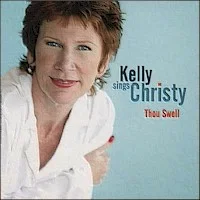Styles: Trumpet Jazz
Year: 2014
File: MP3@320K/s
Time: 69:24
Size: 159,3 MB
Art: Front
(6:33) 1. 60th & Broadway
(4:49) 2. Don't Fall off the L.E.J
(5:07) 3. Not While I'm Around
(7:15) 4. Dark Times
(6:27) 5. Interior Motive
(7:10) 6. The Morning After
(7:12) 7. I Don't Give a Damn Blues
(3:33) 8. Dr. Jekyll
(6:48) 9. How High the Moon
(7:03) 10. We'll Meet Under the Stars
(7:22) 11. New Journey
Year: 2014
File: MP3@320K/s
Time: 69:24
Size: 159,3 MB
Art: Front
(6:33) 1. 60th & Broadway
(4:49) 2. Don't Fall off the L.E.J
(5:07) 3. Not While I'm Around
(7:15) 4. Dark Times
(6:27) 5. Interior Motive
(7:10) 6. The Morning After
(7:12) 7. I Don't Give a Damn Blues
(3:33) 8. Dr. Jekyll
(6:48) 9. How High the Moon
(7:03) 10. We'll Meet Under the Stars
(7:22) 11. New Journey
Sean Jones' recently released im.pro.vise - never before seen, on Mack Avenue Records, is a crisp suit of an album, cufflinks in the sleeves. The quartet of Jones on trumpet, Orrin Evans on piano, Luques Curtis on bass, and Obed Calvaire on drums create a sound that is built on a foundation that includes quite a few bricks from Miles' late-1960's period (as Jones' "ESP"-quoting solo on "Dark Times" can attest), it also builds on the sound of the Wynton Marsalis' 1980's output and the other Young Lions of the time (appropriate, given Jones' tenure with Marsalis in the Lincoln Center Jazz Orchestra). For a music that lives and dies by the drum, the presence of Obed Calvaire is always a good sign (see also: the SFJAZZ Collective and The Clayton Brothers, among others). Likewise, the presence of Christian McBride as one of the album's producers is a good sign, and portends the no-nonsense, good-feeling, straight-ahead jazz on im.pro.vise.
Jones has been playing in groups with Orrin Evans at the keyboard since 2004's Eternal Journey, and with this quartet since 2006's Roots, and their time together definitely shows. From the opening duet between Jones' trumpet and Calvaire's drums on "60th & Broadway", the group works together to build a sound that is greater than the sum of its considerable parts. Each of the members of the quartet gets plenty of room to shine, with Jones and Evans taking memorable solos throughout the album. While there are no proper drum or bass solos on here, both Curtis and Calvaire get a chance to shine as well - Curtis' bassline notably driving "Dr. Jekyll" forward and Calvaire's drums getting a serious workout at the end of "New Journey". They play on seven originals from Jones, plus one from Evans ("Don't Fall off the L.E.J.", Jackie McLean's "Dr. Jekyll", the standard "How High The Moon", and Stephen Sondheim's "Not While I'm Around" (here as a duet between Jones and Evans).
And while the quartet is definitely playing straight-ahead jazz, that's not to say there aren't some very modern elements in here - check out the end of "Don't Fall off the L.E.J." or the clipped trumpet on the introduction to "How High The Moon". The music on im.pro.vise won't change the way jazz is played or define a new sub-genre, but it also won't be leaving my CD player for some time. This album makes a very strong argument that nothing else is needed when the feeling is right and the music is this strong - no overdubs or other studio production, no electronic instruments (not that there's any problem with any of that) - just great, straight-ahead jazz that continues to reveal new layers on each listen. http://nextbop.com/blog/seanjonesimproviseneverbeforeseen
Personnel: Sean Jones (trumpet); Orrin Evans (piano); Obed Calvaire (drums); Luques Curtis (bass)
Personnel: Sean Jones (trumpet); Orrin Evans (piano); Obed Calvaire (drums); Luques Curtis (bass)
Im.pro.vise - Never Before Seen




















